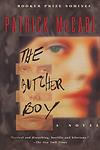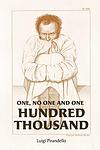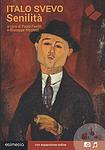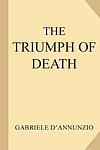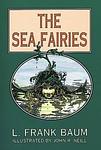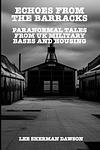The Greatest Italian, Irish "Psychological" Books of All Time
Click to learn how this list is calculated.
This list represents a comprehensive and trusted collection of the greatest books. Developed through a specialized algorithm, it brings together 300 'best of' book lists to form a definitive guide to the world's most acclaimed books. For those interested in how these books are chosen, additional details can be found on the rankings page.
Genres
The Psychological genre of books typically explores the inner workings of the human mind and emotions, often delving into complex and sometimes disturbing psychological states. These books may focus on mental illness, trauma, relationships, or personal growth, and often challenge readers to confront their own beliefs and perceptions. Psychological books may be suspenseful, thought-provoking, and emotionally intense, offering readers a deep and often unsettling glimpse into the human psyche.
Countries
Date Range
Reading Statistics
Click the button below to see how many of these books you've read!
Download
If you're interested in downloading this list as a CSV file for use in a spreadsheet application, you can easily do so by clicking the button below. Please note that to ensure a manageable file size and faster download, the CSV will include details for only the first 500 books.
Download-
1. Ulysses by James Joyce
Set in Dublin, the novel follows a day in the life of Leopold Bloom, an advertising salesman, as he navigates the city. The narrative, heavily influenced by Homer's Odyssey, explores themes of identity, heroism, and the complexities of everyday life. It is renowned for its stream-of-consciousness style and complex structure, making it a challenging but rewarding read.
-
2. Molloy by Samuel Beckett
"Molloy" is a complex and enigmatic novel that follows the journey of its eponymous character, an elderly, disabled vagabond, who is tasked with finding and killing a certain person. The narrative is split into two parts: the first is told from Molloy's perspective as he navigates his way through a strange and often hostile world, while the second follows a detective named Moran who is assigned to find Molloy. The novel is renowned for its challenging narrative structure, its bleak and absurdist humor, and its profound exploration of themes such as identity, existence, and the human condition.
-
3. Confessions of Zeno by Italo Svevo
"Confessions of Zeno" is a satirical, semi-autobiographical novel that follows the life of Zeno Cosini, a neurotic Italian businessman, as he tries to quit smoking. The book is presented as a diary, written at the suggestion of Zeno's psychoanalyst, and it details Zeno's thoughts on his health, his family, his business ventures, and his infatuation with a beautiful woman. Throughout the story, Zeno's attempts to quit smoking serve as a metaphor for his struggles with his personal weaknesses and his quest for self-understanding.
-
4. The Tartar Steppe by Dino Buzzati
The novel follows a young officer who spends his entire life waiting for an attack that never comes at a remote desert outpost. The protagonist's life is consumed by the monotonous routine and the fear of the unknown, reflecting on the human condition and the dread of the passage of time. The desert symbolizes the emptiness and futility of life, while the constant anticipation of a foreign invasion that never happens represents the anxiety and fear of death.
-
5. The Death of the Heart by Elizabeth Bowen
"The Death of the Heart" is a novel set in the interwar period, focusing on a sixteen-year-old orphan girl who moves in with her wealthy half-brother and his wife in London. As she navigates the complexities of her new social environment, she develops a crush on a friend of the family, leading to a series of misunderstandings and betrayals. The novel explores themes of innocence, love, betrayal, and the harsh realities of adulthood.
-
6. The Country Girls by Edna O'Brien
"The Country Girls" is a coming-of-age novel about two young Irish women, Kate and Baba, who grow up in the restrictive and repressed atmosphere of rural Ireland in the 1950s. The narrative follows their journey from a convent school to the bright lights of Dublin, where they seek love and adventure. The novel explores themes of female friendship, sexual awakening, and the struggle for personal freedom against the backdrop of a conservative society.
-
7. The Butcher Boy by Patrick McCabe
The Butcher Boy is a dark and disturbing tale set in small-town Ireland, following the life of a troubled young boy who descends into madness and violence. The protagonist's life is filled with neglect, abuse and mental health issues, and his increasingly erratic behavior and gruesome fantasies lead him down a path of horrific actions. The novel provides a stark exploration of the effects of societal neglect and the failure of mental health systems.
-
8. The Lonely Passion of Judith Hearne by Brian Moore
The novel revolves around the life of Judith Hearne, a lonely middle-aged spinster living in 1950s Belfast who struggles with her declining social status and her increasing reliance on alcohol. As she desperately seeks companionship and purpose in life, she becomes infatuated with her boarding house's landlady's brother, only to face rejection and further isolation. The book explores themes of loneliness, faith, disillusionment, and the harsh realities of ageing.
-
9. A Ghost at Noon by Alberto Moravia
A Ghost at Noon is a tale of a troubled marriage set against the backdrop of Rome and Capri. The story follows a screenplay writer who is struggling with his failing marriage and the production of his new film. As his wife becomes infatuated with their young guide in Capri, the writer becomes increasingly paranoid and jealous, ultimately leading to the collapse of their relationship. The narrative parallels the story of Homer's Odyssey, which the protagonist is adapting for the screen, adding another layer of complexity to the story.
-
10. The Time of Indifference by Alberto Moravia
This novel explores the dynamics of an upper-middle-class Italian family facing financial ruin. The story focuses on the emotional indifference and moral decay among family members, as they engage in affairs and manipulative behavior to secure their social status. As the family's fortunes dwindle, their lack of empathy and moral integrity becomes increasingly evident, offering a critique of bourgeois values and the corrosive effects of apathy and materialism.
-
11. One, No One and One Hundred Thousand by Luigi Pirandello
The book tells the story of a man who has his identity shattered when his wife casually notes that his nose tilts to the right, something he had never noticed before. This seemingly insignificant comment leads him into an obsessive quest to understand how he is perceived by others, and he gradually loses his sense of self as he fragments into a multitude of characters. The protagonist's existential crisis intensifies as he realizes that everyone he meets perceives him differently, leading him to question his own existence and ultimately, his sanity.
-
12. Senilità by Italo Svevo
"Senilità" is a psychological novel that follows the life of a middle-aged man, Emilio Brentani, who falls in love with a younger woman, Angiolina, who manipulates and betrays him. Emilio's obsession with Angiolina leads him into a downward spiral of self-destruction, as he grapples with feelings of jealousy, paranoia, and self-loathing. The novel explores themes of aging, loneliness, and the human condition in modern society.
-
13. A Violent Life by Pier Paolo Pasolini
"A Violent Life" explores the journey of a young man from the slums of Rome who becomes entangled in the world of crime. As he navigates through this violent and chaotic life, he is confronted with the harsh realities of poverty, injustice, and the struggle for survival. The narrative provides a stark and unflinching examination of the underbelly of Italian society, revealing the deep-seated corruption and systemic inequality that pervades it. The protagonist's life is a testament to the destructive cycle of violence and despair that traps the marginalized and underprivileged.
-
14. Silk by Alessandro Baricco
"Silk" is a historical fiction novel that tells the story of a 19th-century French silkworm merchant who travels to Japan for business. During his travels, he becomes enamored with a mysterious woman. His unrequited love for her haunts him for the rest of his life, even as he returns to France and continues his life there. The novel explores themes of love, longing, and the profound impact that brief encounters can have on one's life.
-
15. Eva Trout by Elizabeth Bowen
"Eva Trout" is a novel about a young, wealthy woman who struggles to find her place in society and understand her own identity. She leaves England to live in France, where she adopts a deaf-mute child in an attempt to avoid loneliness. The book explores themes of isolation, communication, and the effects of wealth on personal relationships. The protagonist's eccentric and often impulsive behavior leads to a tragic climax, shedding light on the consequences of her actions and decisions.
-
16. The Triumph Of Death by Gabriele D'Annunzio
This novel delves into the life of Giorgio Aurispa, a man who, amidst the decadence of Italian society, embarks on a journey of self-discovery and existential questioning. Through his relationships, particularly with the enigmatic Ippolita Sanzio, and his experiences across various European locales, Giorgio confronts themes of love, death, and the search for meaning. The narrative, rich with symbolic imagery and poetic language, explores the depths of human emotion and the inevitable confrontation with mortality, culminating in a profound exploration of the human condition and the pervasive sense of disillusionment that characterized the turn of the century.
-
17. The Sea by John Banville
"The Sea" is a profound exploration of memory, grief, and loss. The novel follows the story of a widower who returns to a seaside town where he spent his childhood summers. His present-day experiences are interwoven with memories of a transformative event from his youth involving a wealthy family he befriended. As he grapples with the loss of his wife to cancer, he also deals with the haunting memories of the past. The narrative is a deep dive into the human psyche, exploring themes of love, loss, and the fluidity of time.
-
18. Disobedience by Alberto Moravia
"Disobedience" is a novel about a young man, Luca, who refuses to serve in the Italian army during World War II. The narrative explores his experiences as he hides from the authorities, the moral dilemmas he faces, his sexual awakening, and his relationship with his mother. His refusal to obey the military draft serves as a symbol of his rebellion against societal norms and expectations, as well as his search for personal identity and freedom.
-
19. Brooklyn by Colm Tóibín
The novel tells the story of a young Irish woman, Eilis Lacey, in the 1950s who, unable to find work at home, is sent to Brooklyn by a helpful priest where she builds a new life. She finds work, studies to become a bookkeeper, and falls in love with an Italian plumber named Tony. However, a family tragedy forces her to return to Ireland, where she must choose between her new life in America and her old life at home.
-
20. Room by Emma Donoghue
"Room" by Emma Donoghue is a novel about a young woman named Ma who has been held captive in a small room for seven years with her five-year-old son Jack. The story is told from Jack's point of view as he struggles to understand the world outside of Room and adjust to life after their escape. The novel explores themes of resilience, trauma, and the power of love and imagination.
-
21. The Book Of Evidence by John Banville
The novel is a dark and introspective tale of guilt and psychological turmoil, narrated by a convicted murderer reflecting on the events leading up to his crime. The protagonist, a dispassionate and unreliable narrator, recounts his life of privilege, his descent into a disaffected existence, and the impulsive theft and subsequent murder that land him in prison. As he attempts to construct a logical narrative of his actions, the reader is drawn into a world where the boundaries between truth and fabrication are blurred, revealing the complex layers of the human psyche and the elusive nature of reality.
-
22. Troubling Love by Elena Ferrante
This novel follows a woman who returns to Naples after her mother's mysterious death, determined to understand the enigmatic life her mother led. As she delves into her mother's past, she uncovers a web of secrets and discovers more about her own identity in the process. The narrative explores themes of mother-daughter relationships, identity, and the power of the past.
-
23. The House Of Splendid Isolation by Edna O'Brien
The book tells the story of an old woman living in isolation in a grand but dilapidated house in rural Ireland. Her quiet life is disrupted when a fugitive on the run from the law invades her home. As she's forced to coexist with him, she begins to reflect on her own past and the history of the Irish people, leading to a complex exploration of themes such as loneliness, regret, and the struggle for national identity.
-
24. The Conformist by Alberto Moravia
The novel explores the life and psyche of a government official during the 1930s Fascist Italy, who is driven by a desire to belong and be considered "normal" at any cost. Tormented by his own perceived abnormality and a traumatic past, he becomes obsessed with conforming to the societal norms dictated by the fascist regime. In an attempt to prove his allegiance and suppress his own feelings of inadequacy, he agrees to carry out a political assassination. The narrative delves deep into themes of identity, the nature of conformity, and the moral compromises made by individuals under oppressive political systems.
-
25. The Barracks by John McGahern
"The Barracks" is a poignant and introspective novel that delves into the lives of a family living in a rural Irish barracks. Set in the 1950s, the story follows Elizabeth Reegan, a widow struggling to find her place in a changing society, and her three children as they navigate the complexities of love, loss, and the search for personal identity. McGahern's lyrical prose beautifully captures the emotional nuances of the characters, painting a vivid portrait of a family grappling with their own desires and societal expectations.
Reading Statistics
Click the button below to see how many of these books you've read!
Download
If you're interested in downloading this list as a CSV file for use in a spreadsheet application, you can easily do so by clicking the button below. Please note that to ensure a manageable file size and faster download, the CSV will include details for only the first 500 books.
Download





